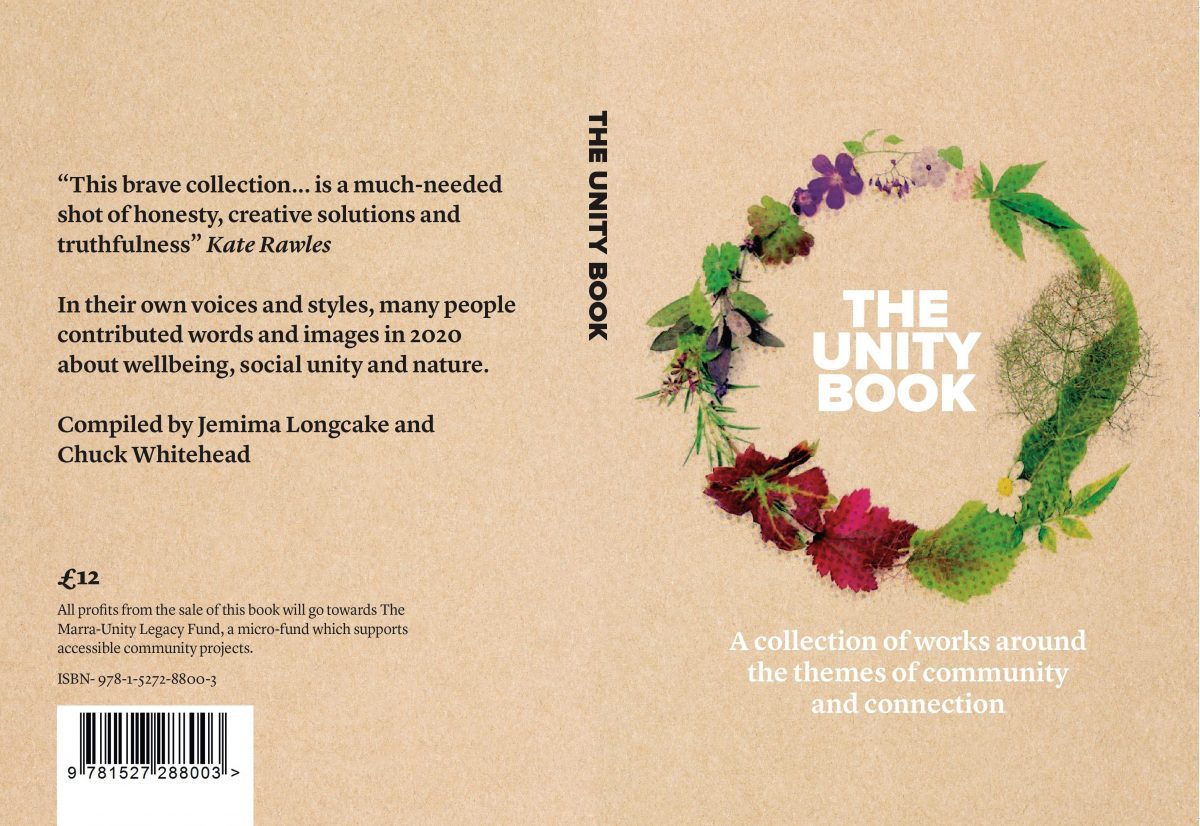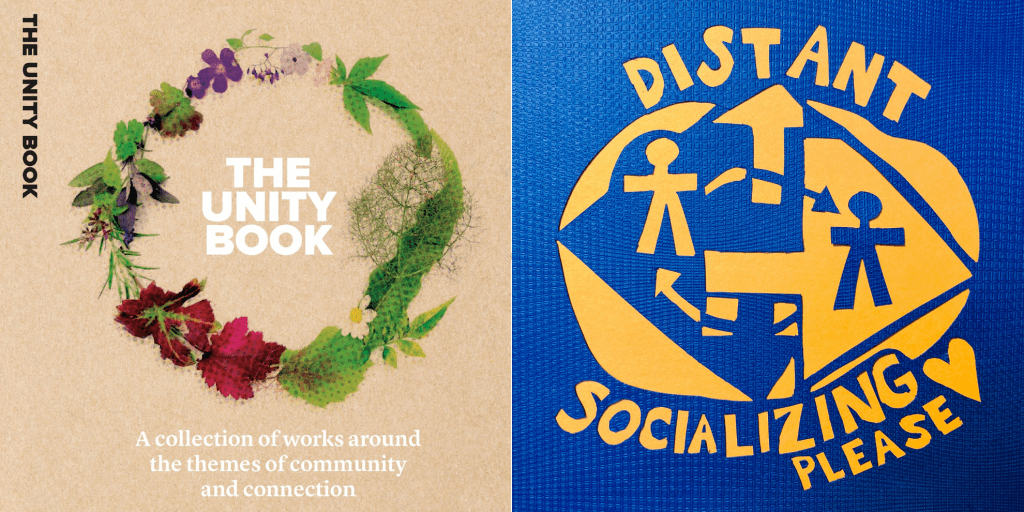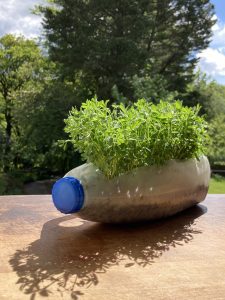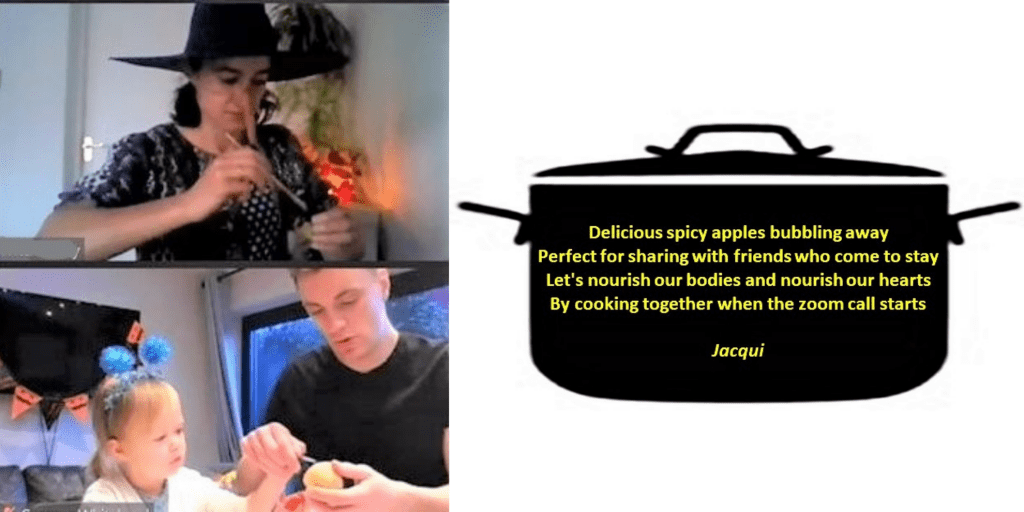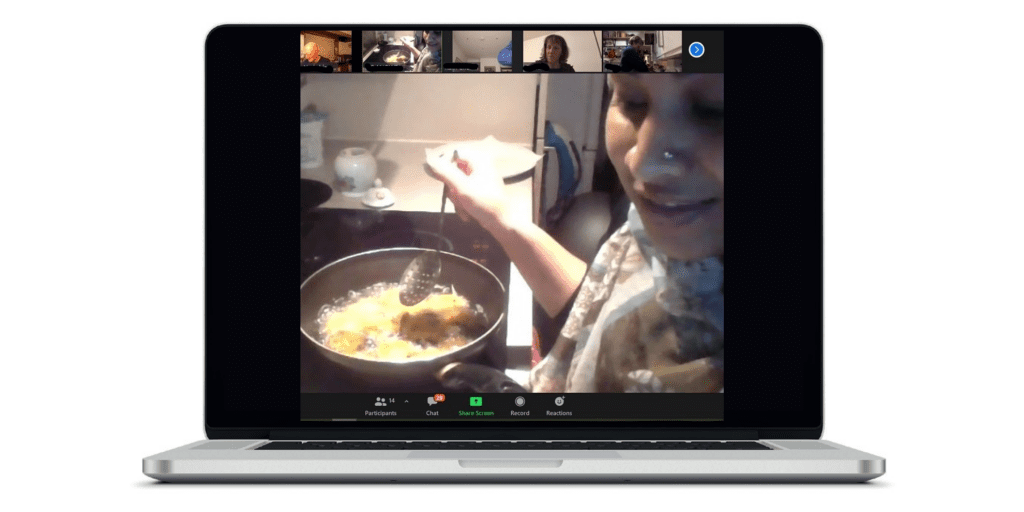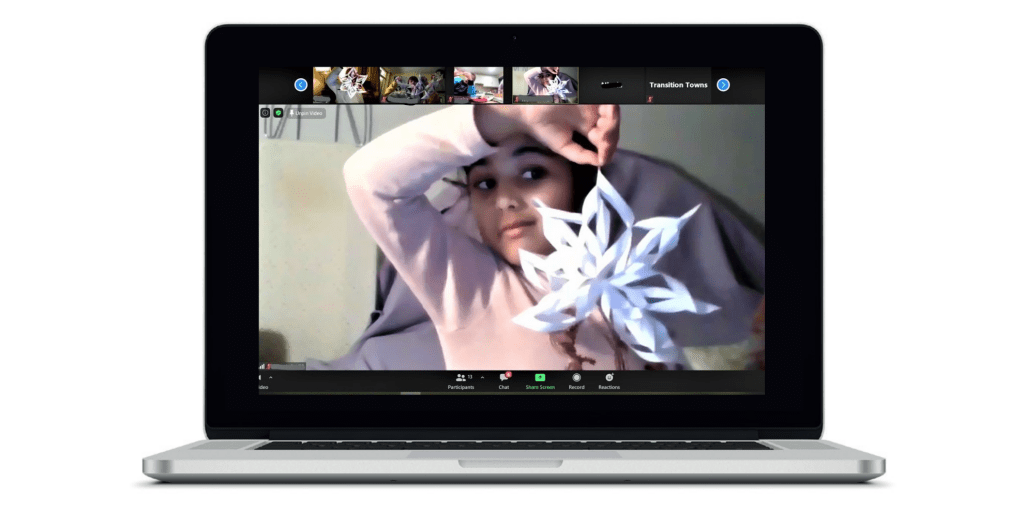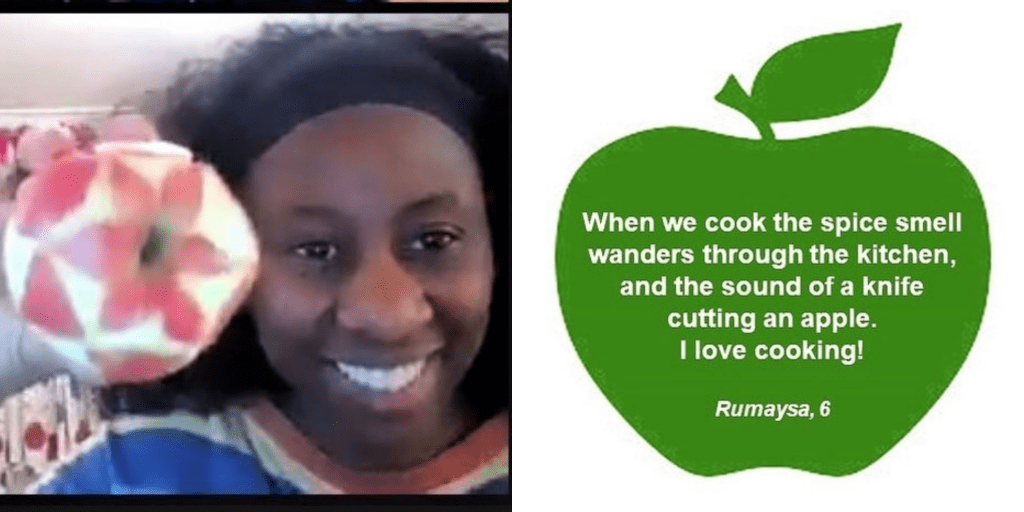Distant Socialising Please, Not Social Distancing
By Guest Author 11th August 2021
As some countries experience an easing of lockdown restrictions and a ‘return to normal’, many groups and organisations will be making moves towards re-starting in-person events and activities. While there are so many benefits to sharing physical space with each other we’ve also heard voices of those for whom events and activities were inaccessible before the pandemic. For reasons including health, employment, caring responsibilities, transport, income, disability and more, many people experienced pre-pandemic barriers to connection and participation. As well as enabling access, online tools have shown us that we can attend events all over the world without the need to fly.
In this piece Nikki Hafter and Chuck Whitehead of Transition Town Tooting share their experiences and thoughts on ‘distant socialising’, asking us to consider how we might keep going with the best of these online participatory methods.
Distant Socialising please, not Social Distancing
Connecting with each other in 2020 and 2021 has been a little different. Most of us have been part of online meetings: family get-togethers, work sessions, blends of live and recorded talks and entertainment. These are all part of the recent imperative to practice ‘social distancing’. Can we improve on that concept?
Psychologist Jamil Zaki has described ‘distant socialising’ as something most of us might wish for in current conditions: to be connected despite physical distance. He points to the confusion created by the go-to label of social distancing, which implies a loss of companionship and connection. But if technology is approached with a willingness to explore and be playful, this need not be the case.
Our new familiarity with ‘distant socialising’ might be a silver lining of the pandemic – and considering the diverse online workshops we’ve been part of in the past year, there are certainly facilitation methods that are worth continuing with, once physical socializing is possible again.
We’ve seen that participative magic is possible in all kinds of online workshops, from cooking to gardening to speech therapy. Throughout the past year, we’ve experimented with how we can be present and proactive with each other in a virtual space.
We only recently learned of Jamil’s analysis. That gave us a fresh look at what we’d discovered in the workshops listed below, where facilitators aimed for a setting where all participants could be proactive.
Some of our learning as facilitators
These workshops felt like remarkable experiences for many reasons:
- What was produced ranged so widely, from gardening and foraging tips, poems, dishes and meals, decorations, gifts.
- The best process seemed to be working alongside rather than telling what to do. The atmosphere of interaction supported goodwill, laughter, invitations, sharing, co-creation, even live translation.
- Time flew by, even in a 2-hour event. What sounds like a lot of screen time was eased by the hands-on nature of the activities and diverse groups. Sessions were not always predictable and linear – there was some uncertainty and some gentle chaos.
It helped to be tolerant and simply enjoy – like a relaxed performance in theatre. You could be active or just watch for a bit…one person said ‘I wouldn’t have joined a live event doing this’, so an online workshop may allow for individual preferences in a different way than face-to-face.
We felt participants were taking the opportunity to reach out (maybe taking a small risk) rather than being constrained by limitations in the pandemic. We felt both welcomed by and connected to strangers and friends of all ages. Joining an online session from your own home is a surprisingly intimate and personal experience – you are invited into others’ houses; people may drift in and out; questions and comments fly back and forth; participants proudly show what they have created.
Thanks to all the facilitators and participants in these online workshops, we found a new, virtual space that was creative, fun and energising.
Here are some examples of online events we’ve experienced
Some were conceived before the pandemic but ran once the spring 2020 UK lockdown began; others were designed specifically for the new normal of Covid.
AWAZ Cumbria initiated a series of weekly meetings in April 2020 across 3 themed topics, co-ordinated by Erika and Nicole from AWAZ as part of the Cumbria Integration Programme:
- Kitchen Garden is an online space for gardening and food, from microgreens to foraging to garden vegetables.
- Multilingual Library celebrates diverse language groups represented in Cumbria through readings and conversation.
- Connection Hub is a weekly informal meeting place.
All these are still running in 2021, connecting people as the pandemic continues. Health, employment, isolation and transport are all challenges across a large county.
Kendal Unity Festival 2020 included making sculptures, exploring unity in nature and creating and sharing poetry as Zoom fringe events before the online Festival Day itself.
Lancaster Fun Palace 2020 featured Zoom drama and poetry-writing workshops alongside events where participants were led to activities through online links – for example collecting materials for crystal-growing – and then carried out the project in their own time.
Sussex culture hub the De La Warr Pavilion’s invitation to Look.Think.Make in dialogue with experiencing virtual exhibitions. This was extended online through a series of videos sharing art activities that used readily available materials.
The Art of Conversation with Aphasia knowledge exchange between De La Warr Pavilion, University College London and Sussex-based charity Say Aphasia. A participative course was designed and delivered entirely online. In the facilitated course stroke survivors and their partners could develop strategies to have better conversations, through a blend of speech therapy and art.
London-based charity Refugee Youth commissioned two food-themed online sessions to deliver on their “Family full of Food, Fun & Friendship” promise. Young people were posted packs of ingredients, baked soda bread rolls live in the session and explored creative writing.
Phosphoros Theatre and CARAS (Community Action for Refugees and Asylum-Seekers) facilitated ten weekly sessions with young refugees and asylum-seekers in lockdown to produce an animated video. We’ve partnered with CARAS since 2015 though we weren’t contributors to this video project. You can watch it here.
5 online workshops were offered once a fortnight in winter 2020/21 by collaborators in several sister-projects in London that are all connected with Transition Town Tooting. As a group of facilitators and contributors we swapped roles around, exploring the online setting with each others’ support. We celebrated creativity and connection for all ages in 3 settings:
- A Tooting Community Garden Halloween event with poetry, crafts and cooking pumpkin soup outdoors. This was was conceived as a one-off and evolved into the series described below.
- The pumpkin soup inspired three cook-along events for Vegetanuary! our Facebook wellbeing and food group. Volunteer home cooks shared the preparation of favourite dishes with participants, from Ethiopian shiro wat to lentil pakoras and raita. In each event a dozen households cooked together in real time. These food-themed sessions explored other creative avenues too: hand shadow-puppets were entertainment alongside a feast, poetry-writing captured the joys of cooking, participants created a list of 2021 food intentions.
- The fifth event was an online variation of ReSparkle! – a face-to-face crafts workshop run annually since 2015. With 5 facilitators, individuals and families made Christmas crafts live and hands-on using re-purposed materials.
Building on the desire for connection online: it’s been recognised that refugees and asylum-seekers demonstrate great skills in distant socializing. For example when using a mobile to share information and navigate routes across the world, or when connecting online to dispersed family members, some who remain in the past familiar home which can be safely glimpsed and heard via a screen.
Linking to the refugee experience, Jamil Zaki’s concept of Distant Socialising is discussed by Jacqui Broadhead from The Centre on Migration, Policy, and Society (COMPAS) in her short article called Social integration and cohesion in a time of social distancing.
In the future, when we can also connect readily face to face, we feel it will be valuable to blend in some of what we are learning during the pandemic about digital connection and community.
This piece was first published in The Unity Book in April 2021. The Unity Book is a collection of experiences from diverse communities: in their own voices and styles. Individuals and groups from all over the world contributed words and images in 2020, exploring themes such as wellbeing, social unity and nature. All proceeds from the book will go towards supporting accessible community projects in Cumbria, UK.
If you would like to learn more, get involved, or order a copy of the book, please contact The Unity Book on Instagram or Facebook, or email thebookforunity@gmail.com.
